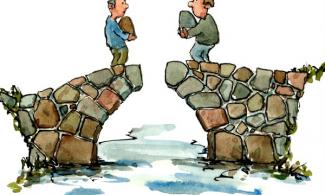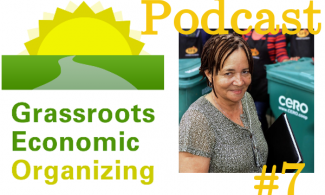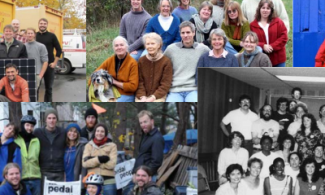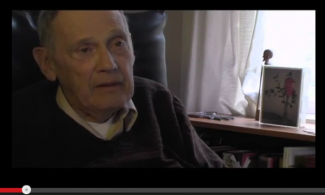I still have a few more posts on the National Worker Cooperative Conference held in Berkeley last week, but this post isn't about the specific workshops, but a general feeling and vibe that I found at the conference (and at other conferences). The work of building a cooperative society isn't quite like other trade associations or business cultures.
Our movement is a calling. This was a key theme in the vocabulary of the weekend. I heard people discuss how they found themselves in the movement and at the conference using that language. I have heard people talk about others who "brought them in" to cooperation. I have often described my life as having found my calling in the cooperative movement and credited USFWC Executive Director Melissa Hoover with helping me to "find my voice" to answer that calling. That, perhaps, is why our movement is becoming so strong. We operate through a very American tradition of "Call and Response". This is the heart of jazz and the Baptists. It is part of our folklore and our literature. It represents a communal form of leadership in which the leaders put forth a call and actively listen to the response. The interplay between the call and response can create a dynamic jam session in jazz (or with certain Jam Bands) in music, and a revelation in a church. In our movement it creates a solidarity and synergy among us.
Prior to presenting the first awards ever bestowed by the Federation, I spoke of the question of a movement based on cooperation, communalism and distributism giving awards to individual "leaders". I argued for a view of mass movements that create a "push pull" effect in the community. The movements pull people into the movement and push leaders to the fore. For example, Dr. Martin Luther King, Jr. did not create the Civil Rights Movement. Rather, the movement created him, and Rosa Parks, and Medgar Evers, and Malcolm X, and George Jackson, and many other leaders. Likewise, ourt movement has created the leaders that we need. First by "calling" them to us and then pushing them to use their skills for the common good. Thus we get excellent leaders such as those recognized this year: Melissa Hoover, Adam Trott, Kristin Forde, Dave Thomases, John Logue, Frank Adams. We also get great number of other leaders whose names might or might not be known to the GEO readership.
The commonality between those of us who have chosen to step outside of our cooperative and interact with the larger movement is that we heard the calling. The calling for a cooperative economy and a sustainable community. The belief that cooperation among cooperation extends beyond discounts, but means education, information and training and mutual support and development.
The feeling of solidarity and mutual support was powerful and, at times, overwhelming. We don't always get that in our home communities or even our home cooperatives where the realities of the marketplace can create distractions and even disgruntlement. Nevertheless, events such as the National Conference allow us to push forward reminding ourselves why we have chosen this road, or should I say why the "road" chose us?





Add new comment